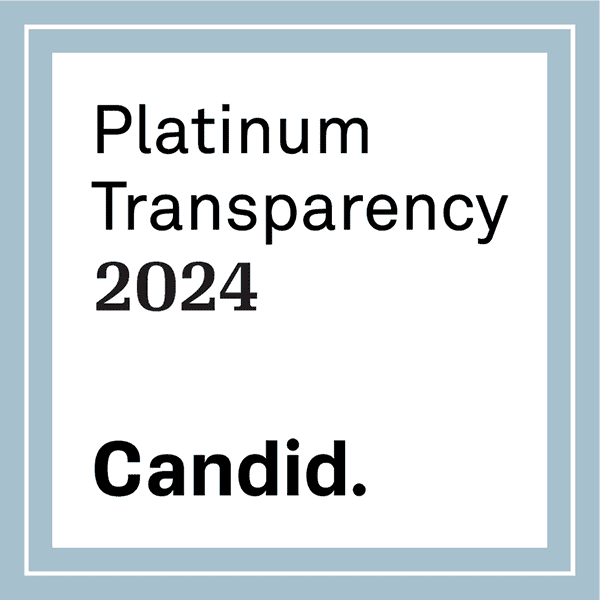
Obtaining Insurance Coverage for PANS/PANDAS Treatments —
Neuroimmune Director and Founder, Anna Conkey, interviews Elizabeth Irias
Elizabeth ‘Beth’ Irias is a licensed Marriage & Family Therapist and the President and founder of Clearly Clinical. Known as the ‘Utilization Review Guru’, Beth serves as a trainer/consultant and works closely with clinical teams through the US to improve quality of care, documentation practices, and utilization review outcomes. She also operates a private practice where she provides therapy to adults, members of the LGBTQIA+ population, and those with addictive disorders. A former adjunct graduate professor at Pepperdine University, Beth is a skilled professional public speaker and presenter, and she regularly presents at conferences throughout the country.
Anna Conkey: Thanks so much for being here today, Beth. Insurance approval is such a challenging issue for families facing PANS and PANDAS. Can you share how this topic became important to you?
Beth Irias: I’ve worked in the Utilization Review field for 15+ years and took a particular interest in the PANS/PANDAS insurance authorization process due to being a PANS parent myself. The skills I recommend to families and clinicians are the same methods I’ve personally used for the care of my children with regard to obtaining insurance authorizations for their PANS treatments.
Anna Conkey: Can you walk us through how the insurance coverage process should typically go?
Beth Irias: The Utilization Review process ought to be relatively straightforward, based on a request from an MD to pursue a particular treatment for their patient’s condition(s). Due to the checks-and-balances nature of the Utilization Review process and the unfortunate reality of potential fraud, insurance companies must evaluate the necessity of services as part of an authorization process. The difficulty with PANS/PANDAS treatment requests comes down to the high cost of treatments like IVIg, Plasmapheresis, and Rituximab, and some administrative roadblocks along the way. Once a clinician knows the system, laws, and strategies, it’s easier to navigate and obtain the authorization approvals one seeks.
Anna Conkey: What should families do if they’re denied coverage?
Beth Irias: The first step when a family receives a coverage denial is to go through the internal appeal process. This is usually described on the very last page of the coverage request denial letter the patient receives once the service has been denied. I always recommend that the family/clinician request an expedited appeal when it comes to immunomodulatory treatments. When a clinician recommends a treatment of that degree, the patient/family likely needs answers as soon as possible and cannot wait 30 or 45 days for a standard appeal determination. If requesting an expedited appeal, the provider should list a clear justification for why the appeal needs to be handled expediently, like the potential for brain damage or other adverse health outcomes. Often, the internal appeal process must be exhausted before the family/provider can pursue an ‘external appeal’ with a state-operated insurance watchdog agency (for example, in the state of CA, these ‘complaints’/external appeals are often managed by the Department of Managed Healthcare or the Department of Insurance, depending on the type of insurance policy and the state’s system). All US states have some watchdog agency to help monitor appropriate management by insurance companies. They can be an amazing help to get these appropriate denials overturned and these treatments covered. It should be noted that initial insurance denials are very often upheld during subsequent internal insurance reviews. Rarely, they’re internally overturned, so families ought to brace for the denials to be upheld. Just because the internal appeal review system upholds the initial denial, it does not mean the external watchdog agency will uphold the denial, too. Providers ought to be aware of the watchdog agencies in their state and can easily find out by asking their professional association/malpractice insurance or by doing a bit of googling. This resource may be helpful, as well: https://content.naic.org/consumer.
Anna Conkey: What are some of the laws protecting families and patients?
Beth Irias: Every state has some kind of law that defines ‘medical necessity’, which may be different from what the insurance company considers ‘medical necessity’- it’s helpful for providers and families to know these laws in their state. For example, an insurance company denied an authorization request for a child to receive IVIg, stating that the FDA did not approve the treatment for the condition, so they would not cover it (i.e.- IVIg was ‘off-label’). The provided denial justification was irrelevant because that state does not require that a service be FDA approved in order for it to be ‘medically necessary’ and therefore covered by the insurance company (see Donald Dobson v. Secretary of Health and Human Services, No. 20-11996 (11th Cir. 2022), setting a standard). That particular state law only required that the ‘off-label’ treatment have at least a few peer-reviewed studies supporting the use of the off-label treatment, and there were many peer-reviewed studies supporting its use, thereby satisfying the state requirement for medical necessity. Ultimately, the external watchdog agency overturned the denial because the insurance’s denial and justification were inappropriate. It’s also helpful to know if your state has a Corporate Practice of Medicine Doctrine, which forbids non-MDs from making medical decisions for a patient (like an insurance company dictating what care the patient receives or does not receive). Here’s a helpful resource to learn about that: https://www.nelsonhardiman.com/hc-law-news/understanding-the-corporate-practice-of-medicine-doctrine-and-the-role-of-the-management-services-organization/
Anna Conkey: If a patient or caregiver feels that the insurance company is unfairly continuing to deny even after appeals, etc., what should they do?
Beth Irias: The best two remedies when repeated internal denials have been issued by the insurance company are to either pursue a complaint and/or external appeal with the state’s watchdog agency (in the state where the medical plan originates) or to contact a behavioral healthcare attorney to try to help put some pressure on the insurance company to authorize the service. Alternatively, families may have luck getting nonprofit state disability advocacy groups to request assistance, if available. I recommend that families and clinicians keep clear and detailed records about the denials and the associated medical records in order to make the review process as easy as possible for either the watchdog agency or an attorney. The state watchdog agencies are generally responsive when you ask for help. If you’ve never filed a complaint or external appeal before, a phone call can go a long way in learning the process and getting additional help from the advocacy groups.
Anna Conkey: What is your perception of the PANS/PANDAS insurance mandates?
Beth Irias: Immunomodulatory treatments are typically very costly for insurance companies, and insurance plans closely monitor high-cost services. More and more US states are passing laws requiring insurance companies to cover immunomodulatory treatments for PANS/PANDAS, and I hope these services will eventually be considered the default standard of care, reducing a major stressor for both families and providers alike.
Anna Conkey: What information can clinicians include in their authorization requests to help improve the chance of a positive outcome?
Beth Irias: If particular peer-reviewed studies support the use of a specific treatment to manage PANS/PANDAS, I highly recommend that the provider include those references with their authorization request; providers can easily find a list of these studies and can use the same list for different patients if the treatment is the same. Frequently, immunomodulatory treatments for PANS/PANDAS are unknown to the reviewing MDs at the insurance companies, and providing those resources out of the gate may prevent an inappropriate denial. I also recommend that the authorization request include the following: Letters of support for the requested service from other providers, how the treatment meets the state’s legal definition of medical necessity, and how the treatment meets the insurance company’s own medical necessity criteria (as part of the Affordable Care Act, insurance companies are required to have transparent medical necessity criteria available for patients and providers alike). For example, if the payor’s medical necessity guideline says, “We only pay for a certain service when the XYZ factors are met,” literally quote their criteria in the letter and break down how the service meets medical necessity in relation to each factor.
Anna Conkey: Any other information that might be helpful?
Beth Irias: Though not specifically related to PANS/PANDAS, here is a free online resource about fighting insurance denials, created by Tom Wilson about cancer treatment denials: https://www.netcancerawareness.org/wp-content/uploads/2022/02/appeal_hi_co_denials.pdf. The recommended methods may be helpful for PANS/PANDAS providers to use. Keep up the good work. The work you and clinicians are doing in supporting these families is meaningful and impactful, and figuring out administrative ways to streamline the authorization processes may yield great results for these patients.
Anna Conkey: Thanks so much for your time today, Beth! I think patients, families, and clinicians will find this information valuable.
A note from Neuroimmune Foundation:
Throughout the years we’ve been advocating for patients and families with PANS/PANDAS, we have found that perhaps the single most important thing to remember when attempting to obtain insurance coverage for PANS/PANDAS treatments is to submit the prior authorization to both the Medical Benefits Insurance Provider as well as the Pharmacy Benefits Insurance Provider. In most cases, these are two separate companies. For instance, with many Blue Cross Blue Shield plans (as well as Aetna, UHC, and other major insurance companies) a prior authorization for certain medications (ie. IVIg, Rituximab) should go to CVS Caremark (or whichever company is the Pharmacy Benefits Insurance Provider). We’d estimate greater than 80% of families we’ve advised to submit a prior authorization to the Pharmacy Benefits Insurance Provider have received an approval within under 72 hours after being denied by the major medical insurer. We would urge clinicians to submit prior authorizations to both medical benefits as well as pharmacy benefits at the same time. Most often, peer-to-peer review and appeals are unnecessary when submitted to both groups. This can dramatically improve access to treatments and expedite approvals.







